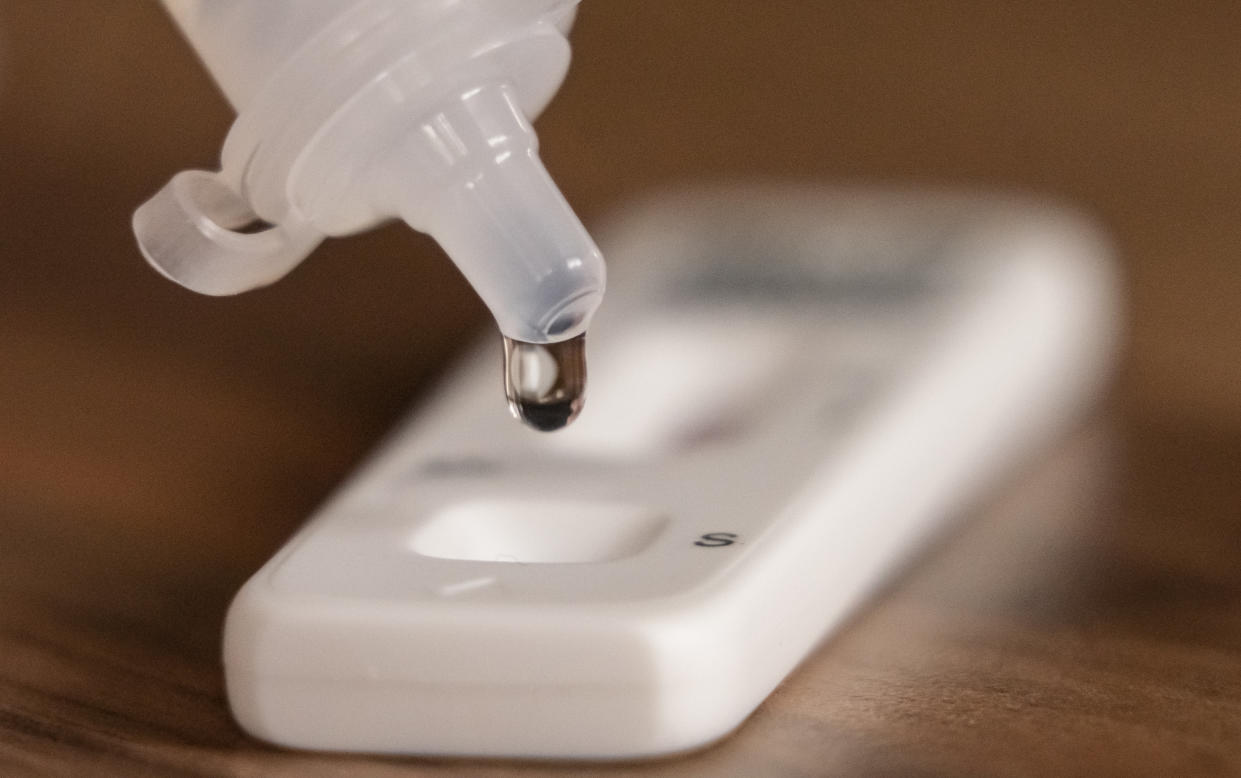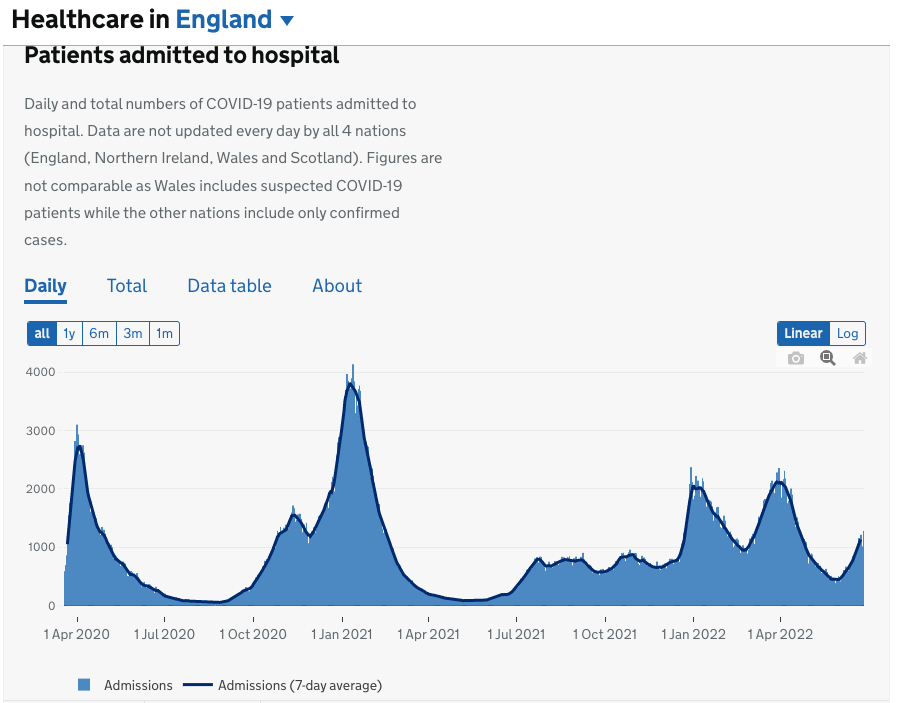Summer COVID wave: We don't know when cases will peak, says expert

Up to 300,000 people in the UK are testing positive for COVID-19 every day and it isn't clear when the current summer wave will peak, an expert has said.
The UK has been learning to "live with the virus" since Boris Johnson announced the end of all domestic restrictions in February.
Despite a decline in new cases throughout the spring, infections are once again on the rise, driven by the newer variants BA.4 and BA.5 – which now make up more than half of all new COVID cases in England.
Dr David Spiegelhalter, chairman of the Office for National Statistics' (ONS) COVID Infections Survey said the new wave appeared to be behaving differently to previous spikes in the pandemic.
"There is a wave, there's been an increase in infections since mid-May," he told the BBC. "It's not going to be a wave with big spikes that we've previously seen before, it's likely to be much more shallow, but we don't know when it's going to top off.
"I think maybe swell is a better way to describe it."
Read more: Covid fifth wave - Hospitals bring back masks on wards just weeks after rules relaxed

Dr Spiegelhalter said the latest figures were also evidence that COVID does not act like a seasonal virus, adding: "We may be getting around 300,000 actual new infections a day.
"Previous Omicron waves in January and March were up to more than half a million a day so we're not as high, but it does mean a lot of people are catching this virus and it's still going up."
Recent figures from the ZOE COVID survey support his estimates, with 275,706 testing positive for the virus on Sunday.
The increase in new cases has resulted in a rise in those being admitted to hospital. Latest government figures show a 38% rise in hospital admissions over the past seven days compared with the previous week, with nearly 8,000 patients being admitted for treatment.
Most hospital patients who test positive for COVID-19 are being treated primarily for something else, rather than the virus.
But they will need to be kept isolated from those patients who do not have COVID, putting extra pressure on hospital staff working at an already overstretched NHS.

Earlier this month, new figures revealed a record high 6.5million people were waiting for hospital treatment in England.
"Hospitalisations are still way below previous waves of Omicron but the NHS is under increasing pressure and we've seen previously very strong pressure on ambulances', Dr Spiegelhalter warned.
And while deaths remain low, Dr Spiegelhalter said they "will go up almost certainly in the future".
The spread of the disease will also likely lead to more people suffering with long COVID.
Earlier this month, the ONS said that up to 2 million people reported they were still experiencing symptoms more than four weeks after their first suspected infection.
Prof Danny Altmann, an immunologist and expert on long COVID at Imperial College London, told the Guardian the figures needed to be addressed by policy makers.
“We’ve now created a far larger cohort of the chronically unwell and disabled than we previously had, say, within the entire national burden of rheumatoid arthritis, its healthcare costs, associated loss to quality of life and to the workplace. This couldn’t be further from ‘living with COVID’", he said.

Asked about the increase in cases at the weekend, Boris Johnson said he hadn't checked the figures for "a while".
The prime minister said: “To be absolutely frank, I haven’t looked at it for a while. I do know that cases are up.
“I don’t believe there’s an immediate cause for concern, but people should just look at the NHS guidance and particularly for older people I would imagine that the answer is to get a fourth jab.”
The BA.5 variant is thought to be growing approximately 35% faster than BA.2, while BA.4 is growing 19% faster – meaning it is likely that BA.5 will soon become the dominant COVID-19 variant in the country.
But there is “currently no evidence” that the two variants cause more serious illness than previous variants, according to early research from the UK Health Security Agency (UKHSA).


